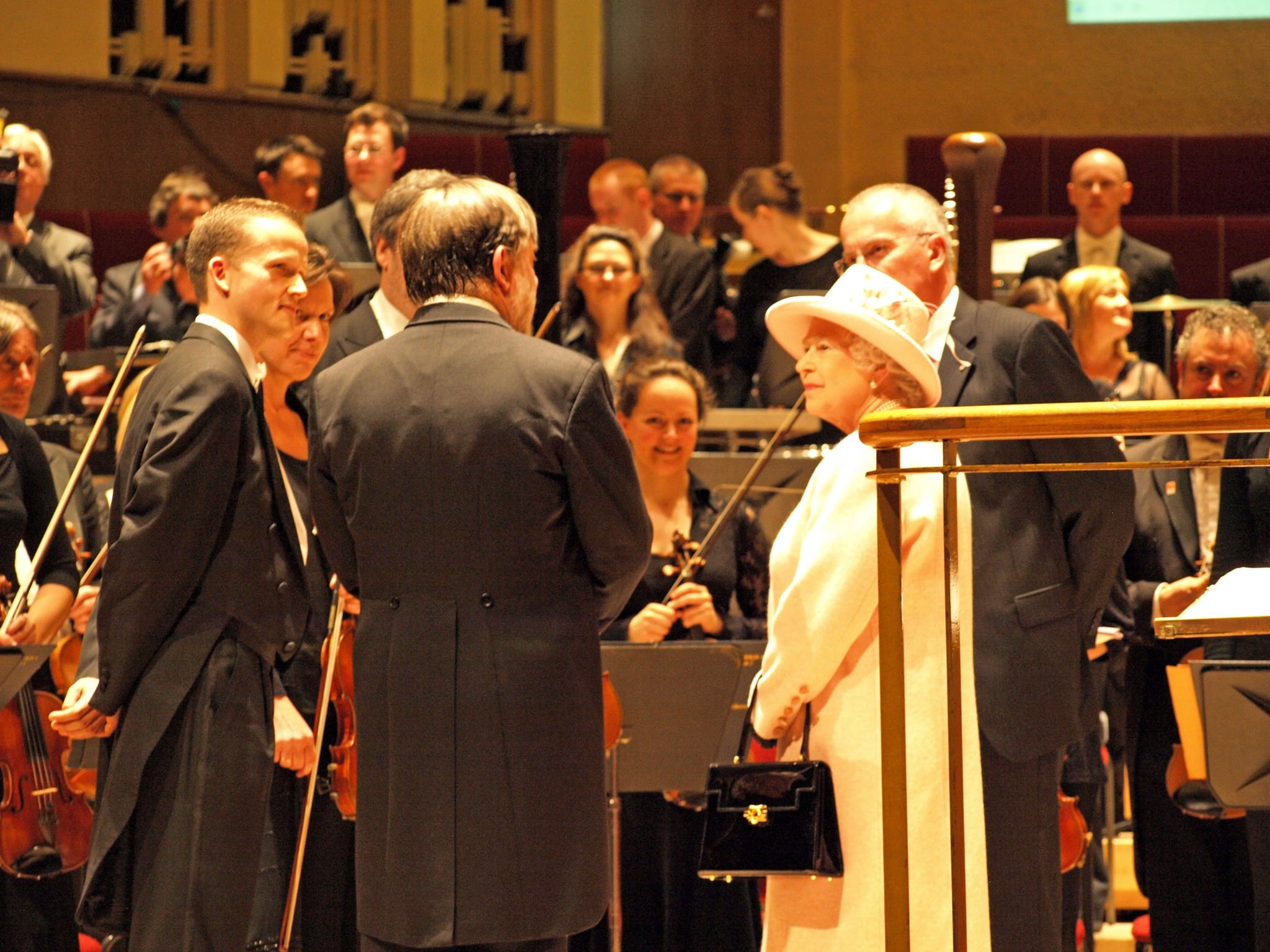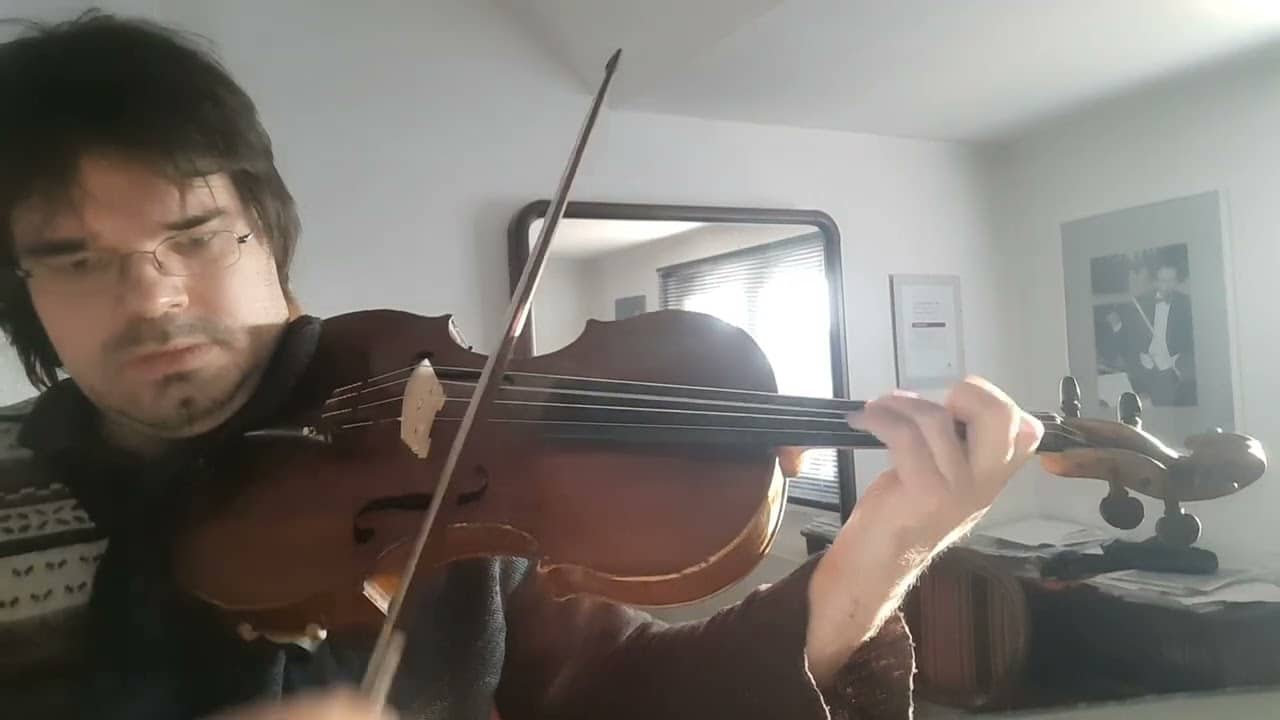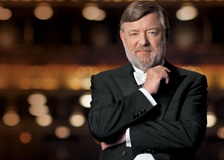The sorry state of music in New Zealand
NewsFrom Ramesh Nair:
Non-New Zealand readers need to understand the political context of all current NZ cultural funding decisions. The current government is Labour led by PM Ardern, and in its second term, from 2020 onwards, holds an absolute majority of seats. In the 2018 census, out of the approx. 4.8 million population, people of Pacific Island ethnic heritage comprised about 400k, Indigenous Maori 800k, ‘Asian’ 700k. Proportionately, far more PI and Maori have historically voted for Labour than White, or even ‘Asian’. The latter might sound somewhat counterintuitive for UK and US readers, where non-White votes traditionally skew left. However, in Australia and NZ, where around half of the Asian bloc has Chinese or Korean ethnicity, East Asian immigration has largely occurred over the past 30 years, favouring those with educational qualifications and/or wealth. Therefore, these voters have a general tendency towards the political centre-right. This is reflected in Auckland, which has the most electorate seats of any region in the nation : the Pacific dominated seats voted Labour, and the seats with the most East Asians voted right.
When NZ cultural organisations speak to parliament, the general rubric therefore has to be ‘we will get more money from non-government sources’, coupled to we will ‘diversify’. Here ‘diversity’ generally ignores or downplays the Asian element. ( The only exception to this was the Christchurch mosque terrorism where an absolute majority of the victims were born in wider Asia/Middle East.)
However, as anyone with experience attending symphony orchestras worldwide can attest, the classical music profile skews towards greater age and disposable income, the latter being proportionately of greater importance where government subsidies are lower. Professor Sayer will know better than me, but generally in NZ national piano competitions, over the past 20+ years, around 17 of the top 22 young classical pianists have east Asian ethnicity, and the remainder being White. In terms of string players in the National Youth Orchestra, perhaps a third are now of East Asian ethnicity. However, the best NZ younger classical singers have Pacific ethnic heritage, and have come through the tradition of Pacific Island church singing.
Therefore, NZ has a demographic situation where a disproportionately high percentage of youngsters with elite-level western classical training are of east Asian ethnicity; not yet exceeding the White component except for highest-level piano. Most but not all of these Asian high achievers have either attended elite NZ urban high schools, or have benefitted from the Asian cultural tradition of parents investing a great amount of money in a smaller number of children, for the customary private tutoring in science, maths, and western classical music.
What this means is that even though the core full fee-paying audience for classical music are the over-60s ( I am unusual as I am younger, and half-Indian half-Chinese ) and White, it is a demographic fact that of those under the age of 30, the fraction of the NZ population that has a high level of familiarity with western classical is overwhelmingly White and/or Asian, with the latter component steadily increasing. So long as a majority of the under-30s who have high level classical music familiarity need to have private pay-money tutoring to make up for shortfalls in public music education, this will continue.
This actually means that the NZ classical scene is actually ethnically diverse if one acknowledges that diversity means Asians in the Western classical music context. However, because PM Ardern’s Labour government has core Pacific and Maori voting support, there is a ‘diversity problem’ that must be addressed by the NZSO playing with NZ Maori metal band ‘Alien Attack’, as is noted in the linked article.
In Auckland, 28% of the population has Asian ethnic heritage ( and East Asians comprise nearly half of this ), 16% Pacific, 11% Maori. The classical music full-fee-paying audience is overwhelmingly White, but the East Asians as audience members are emerging. Generally, the parents of the classically attuned Asian youngsters do not have anything like the same western cultural knowledge. Even though they have the money, they will not turn out in force unless a superstar like Lang Lang, Yundi, or Yuja Wang appears. I pay $90 a seat for my NZSO subscription, and no matter the virtue signalling, the fraction of the Auckland Pacific population who can spend this amount every month for classical music is very low.
But there is another big problem in NZ classical music : the self-styled ‘thought leaders’ in NZ classical music. Readers are urged to google composer Michael Norris’s ‘Matauranga’. Matauranga was adjudged SOUNZ 2020 winner as ‘New Zealand’s best-ever contemporary classical piece for the year’. Listen and judge for yourselves. I paid $90 for my prime stalls seat to the NZSO to hear ‘Matauranga’ in Auckland Town Hall a couple of years ago. In the 32 seats of my row, six were occupied, and the same applied for most other prime stalls seats. Composer Norris, whose salary is paid for by the NZ taxpayer as a university academic, and others, are staunch and earnest White advocates for the Maorification of the NZSO and all other NZ cultural institutions. Increasing diversity is great, especially if one’s academic salary is paid for by the government, as is the case with most of NZ’s White ‘cultural thought leaders’. The trouble is that ‘thought leaders’ don’t have the job of cajoling people to pay full price, eg $90 a ticket, especially if they can get free or heavily discounted tickets themselves– because they are White ‘cultural thought leaders’.







Well-written!
Isn’t this the state of affairs in most multi racial countries? So why is it sorry? Lots of good music is coming out of New Zealand and also lots of talent.
The doom and gloom seems more “racial” than it has to do with classical music and young people everywhere (regardless of race) are not really in to classical music.
This post also goes to show that multi racial societies do not have one single block of ethnicity but they are often at each others’ throats. One can see that also in the USA where the Latin group has far different feelings and needs than, say, black Americans. Julian Castro, for instance, has had some very harsh words for Joe Biden and Biden for his part has ignored Castro.
“Proportionately, far more PI and Maori have historically voted for Labour than White, or even ‘Asian’. The latter might sound somewhat counterintuitive for UK and US readers, where non-White votes traditionally skew left.” … huh? So the writer says basically, “these people vote left, which might be a surprise to UK and US readers where these people also vote left.” ?! Also, highly, highly questionable that people with high education qualifications primarily vote right wing. At best the statement is a tad reductive, and worst it’s cherry picking; a centrist evaluation might be that it’s probably a more equal distribution than the writer would care to substantiate. So why the attempt to pass it off as a certainty? Because it’s a plainly biased and worthless article.
There’s nothing wrong with NZ classical music production. It’s doing far better than Australia, who have been losing some of their best musicians to NZ at a greater rate over the last few years, perhaps due to their less toxic workplace environments and less hectic schedules. Plus, as an opinion, the soul of the NZ people is far warmer and more conscientious and compassionate than that of Australians at this point. I’ve no idea why that might be but it could have something to do with the percentage of the last 30 years that Australia has had to contend with conservative governments and the fact that we enjoy voting for governments that imprison refugees for eight or nine years…
(Don’t get offended, Sue SF.)
No, he’s saying it’s counterintuitive that Asians (“the latter”) skew right.
In fact I don’t think he’s being reductive (because this certainly isn’t the case that those with $ vote right in the US), but is pointing out perceptions of the differences in demographic in NZ vs rest of the multiracial western world.
I see what you mean now; I do think it’s phrased poorly though.
I also was only referring to the generalisation which is made that highly educated people vote right. I left out the $$ part in my comment on purpose, because I figured that part might be true. Certainly is in Australia.
That’s because people who vote right are more likely to be ECONOMIC progressives and not social engineers. What in the would could possibly go wrong with social engineering?
G – no strings attached, but Mr Nadir’s article is balanced and open to criticism. Your own non-empirical judgements such as “reductive’ (do you mean reductivist?), “less toxic workplace” , “more conscientious and compassionate … at this point” are naive. Mr Nadir’s comment on some New Zealand music is based on its creation and appeal, not on its production. In your last sentence do you mean “governements that do NOT imprison refugees”? Get your facts right.
Mr Lloyd appears never to have heard of the refugees still stuck for years on Manus Island (and previously Christmas Island). The sad fact is that the large Australian political parties on both sides of the spectrum stick to this policy because they know it plays well with the electorate. Indeed, John Howard won an unwinnable election on just this sort of policy.
Where isn’t music in a sorry state right now? The last composers to achieve anything close to greatness died decades ago (Copland in 1990 and Messiaen in 1992). We’ve been on a rudderless voyage through endless dreck ever since.
Whilst there are lots of points to be made about race and diversity in classical music, how it’s an issue, how to address it or not an interesting point in the article is class. For me the sorriest state of classical music is that it’s become an arena where you need to be well off or well supported financially to consider doing it at all. There are so many obstacles if you are not from a middle class background – all the arts have gone this way. If access and support for people from poor backgrounds was seriously addressed it might be found that in many cases it addresses diversity issues at the same time.
This is absolutely true, especially if you look back at all those great composers whose parents were jobbing (not illustrious) musicians, or in the C20th the huge number of performers who got their start… at school, in their country’s education system.
It feels like atm we’re losing routes to education and not replacing them. I believe that your assertion is correct, as exclusion is an out-group affliction by definition lol. I am not a long time classical listener, though, so I understand why people find the scene forbidding.
As uncomfortable as it may be to hear, the uptight attitudes to non-classical music are very off-putting to new or casual listeners from most pop or dance music oriented backgrounds (whereas it mirrors the rhetoric of a lot of rock and metal fans, who prize exclusivity and homogeneity). I don’t think that most classical listeners are snobs or racists per se, but vitriolic attacks on rappers and pop stars can make a person sound cranky and out-of-touch in ways they might not realize.
Sorry I went off on one… I’ve been thinking about this stuff a lot lately.
A very interesting piece for someone who knows nothing about New Zealand. However you don’t mention how much people earn on average. Maoris etc. are they treated like second class citizens like American Indians? if so they probably can’t afford to go to concerts.
The Maori and Pasifika cultural scene is very strong – for example kapa haka (Maori performing Arts) has a national festival tournament (Te Matatini) and is broadcast on a national tv channel here. Various groups and some of the festival footage is online. As a result, western classical cultural take up is not high but has manifested itself in some marvellous opera singers as singing is a big part of the Pasifika churches. You may have heard of Pene Pati, James Loelu, Amitai Pati and others. These young stars are inspiring others to take up the craft in NZ and overseas. Long may it continue !
Kiri Te Kanawa?
Now happily retired and spending time with her grandchildren in Northland.
Dear god, seriously ? The author completely ignores the regional orchestras which are doing excellent work in the classical music sphere and are finding ways to diversify their audience as well as looking to channel new sources of funding. Demographic diversity is an issue, sure, but it is critical to put forward a correct statement of affairs in the first instance.
The New Zealand Government has made funding available as a result of COVID which can be found here:
https://mch.govt.nz/regenerating-arts-culture-and-heritage/music
With the greatest possible respect to the original observations made, the NZSO, excellent though it is, is not the only orchestra in the country and the very good Auckland Philharmonia Orchestra has actually been more interesting to listen to with more diverse and challenging programming over the last decade than the NZSO. In Manukau City, Uwe Grodd leads the Manukau Symphony Orchestra which has been going for almost thirty years now. Both the APO and the MSO have outreach programmes for youth and development and both have active in school education programmes to broaden exposure and potential audience base.
Other bespoke concerts have been put on such as a tribute to Aretha Franklin which had a sold out audience at the Dame Kiri Te Kanawa Theatre (Aotea Centre). A Superheroes Music concert has had to be cancelled due to the current lockdown and concerts with Benee have also been postponed but these were attracting a younger audience and all sold out as well.
Lockdown in 2020 and 2021 has presented challenges without international artists but all of the orchestras have called on local talent and some returnees (Simon O’Neill, Holly Matheson, Gemma New, Benjamin Morrison) with good success. Doubtless this will continue in to 2022. The APO, for example, has put some of their concerts on their YouTube channel and in the absence of live concerts, have made for good viewing.
We have been lucky in New Zealand to get live concerts in both 2020 and 2021. The Royal New Zealand Ballet have also been lucky enough to get almost a full season so far nationally. Yes, arts funding will continue to be a challenge in a country devoted to sports but some of us are still supporting the arts ! Hopefully, we can get a full season of regional and NZSO concerts in 2022, health and safety protocols willing.
Thanks RACG,
My article was written in direct response to an earlier one on the NZSO management reporting to a Parliamentary culture subcommittee : hence the occasional reference and dud hyperlinks that should have linked to the original one about the NZSO. This was why the APO in particular was not referenced.
Incidentally, one of the four musicians you noted in your penultimate paragraph was the very first person to message me on Facebook, thanking me for publishing it, agreeing with every point that I did make. But this musician, and according to a phone call I had this evening with a NZ orchestra manager about another one of your named foursome, do not wish to put their names out in public. They presumably fear potential repercussions if they publicly disagree about the wild and wacky contortions the NZSO etc have to put themselves into for musical ‘collaborations’ that satisfy ‘Creative NZ’ [ sic ] funding. This manager told me tonight that every single NZSO player they talked to hated playing in the Alien Weaponry and another crossover concert.
The APO has produced more innovative contemporary classical programming than any main symphony orchestra in Australia, it seems. The Abrahamsen horn concerto, Lindberg Grand Duo, and Aho Timpani concerto [ not one of Aho’s very best ] were fantastic works to hear in the concert hall — and as compositions so much stronger than the SOUNZ contemporary winners of the past few years.
Not sure what the point here is. And even if the point is relating to the ethnicity of those with access to classical music, the writer had completely missed the current revolution in NZ with the Sistema based youth programmes around NZ. If he had paid attention to the chamber music competitions he would have noted that the one group to regularly get to the finals was predominantly Pacifica. These programmes don’t rely on household income levels, and these young people are becoming absolutely incredible musicians. Each year they are collaborating with APO, NZSO and OW (and these are just the ones I know about). In my school we have heaps of students learning stringed instruments in our own Sistema style programme (aiming to get to 10% of the school) and the lesson groups are very diverse and are not limited to the ethnicities this writer talks about.
Dear E, so you are not sure what the point is. The point is I am Asian, and I am pissed off how bourgeois White NZ commentators on the NZ classical scene almost invariably take Asian classical musicians for granted. I wanted to write an article to point out the Asian impact on the NZ classical scene.
When Tianyi Lu won two major international conducting competitions, RNZ had a piece on it, but our NZ ‘newspapers of record’ didn’t give a stuff about her achievement. When did a White NZer win two European conducting competitions? Or a Maori?
I know a Maori single mother with a child in the APO’s South Auckland Sistema. A few years ago she said to me, ‘Ramesh, the APO photographer came out to take pictures of my son’s Sistema violin group. You know what? The best two kids in my son’s group are an Asian girl and a Samoan. But the photographer only wanted to take photos of the three Maori kids in the group. My son was chuffed he got his picture taken, but I felt sorry for the best kids in the group, who weren’t included in the photos’. Well E, that is your White-Maori biculturalism in action.
“Has any white or Maori NZer done this?” seems like a bit of a hot take. That *can’t* be the point, even in the context of a literal competition we shouldn’t frame musical culture like it’s competitive sport. That said, I actually do see your point.
Anti-Asian prejudice is insidious, all too often obfuscated by decoy issues around religion or politics (often not particularly accurate: anti-Muslim catcalls aimed at Sikhs, calling Taiwanese/HKers “Communists”). Depressing stuff.
Xx years ago, as a scruffy goth kid, I went on a school trip to Monet’s old pad in Giverny (pardon the pun). The students were accompanied by a pro photographer, who proceeded to place me in the background of every shot so that my face (and facial hair, and hair, and most of my black clothing) was hidden by the rest of the class… who were mostly “presentable” young women, i.e. not goths. Although at least one of them was a Sisters fan.
You have a pretty selfish point. Basically you have a problem with anyone supporting the diversity of NZ classical music if it doesn’t include every achievement from an Asian musician. I think you will find that the problem is not that certain groups are missed out of mainstream media coverage, but that classical music in general is missing from a lot mainstream media coverage. Do we actually need to know that another pianist has whipped out a Rach 3 and won a competition. It isn’t actually really “news”. It isn’t getting people out to watch classical music. What I’d like to see on the news – the absolutely amazing (and by far the best musical experience I’ve had for years) Virtuoso strings performing ” O Matou Malaga, Our Journey” a new work celebrating our people and our places. That is news. That is what will get people watching classical music. Your point is one sided and out of date.
A school prefect runs New Zealand along neo-racist lines. A former President of the world Socialist Youth league she’ll run NZ into the ground. That, of course, must drag serious art music with it. You get what you vote for.
You want to tut-tut about money and classical music? Ardern relies upon that very money to fulfill her dreams of a utopian NZ – so stop with the hypocrisy already!! It’s ALWAYS all about money. Everything is.